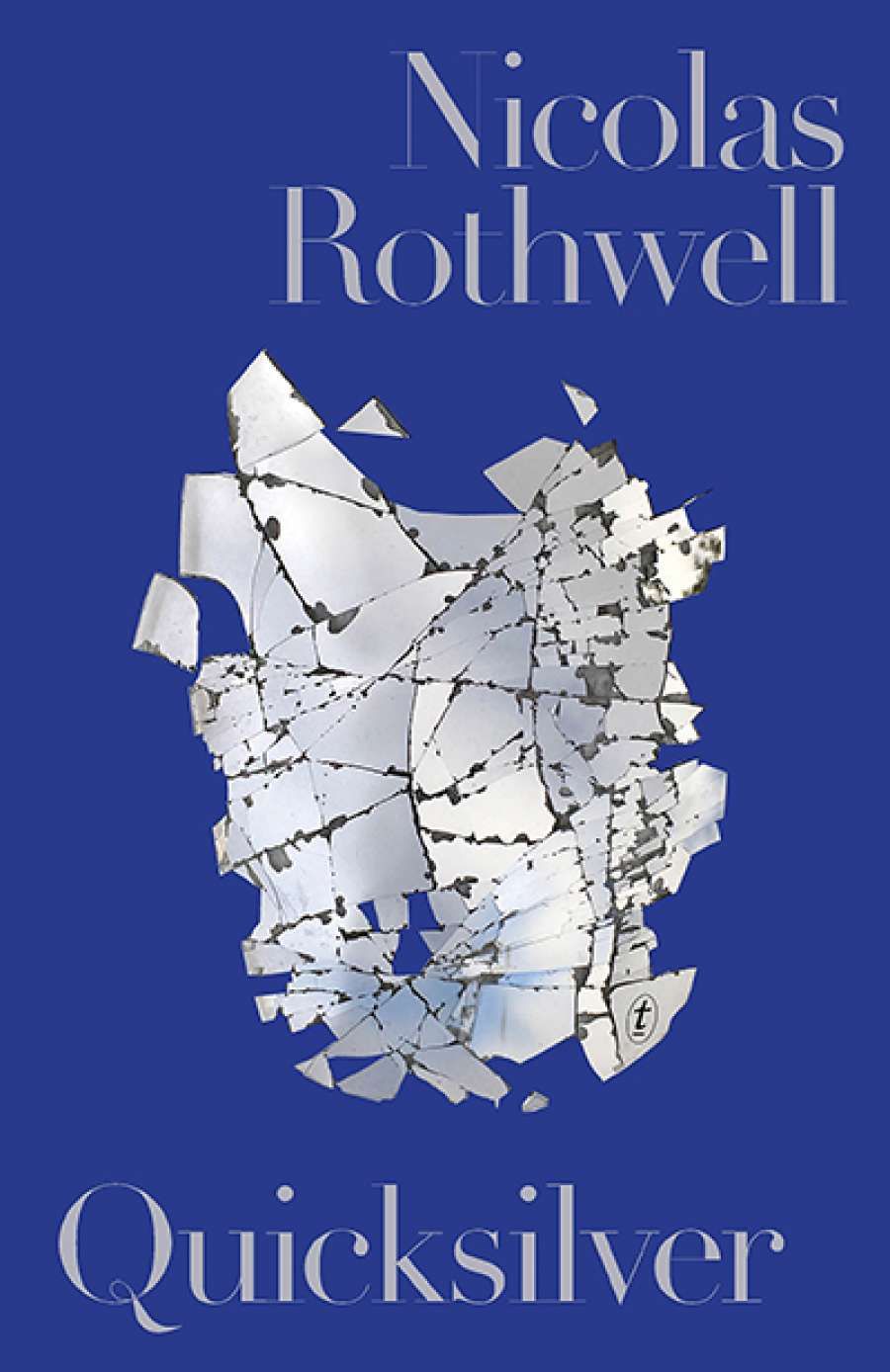
- Free Article: No
- Contents Category: Essay Collection
- Custom Article Title: Andrew Fuhrmann reviews 'Quicksilver' by Nicolas Rothwell
- Review Article: Yes
- Online Only: No
- Book 1 Title: Quicksilver
- Book 1 Biblio: Text Publishing $29.99 hb, 200 pp, 9781925355574
Rothwell’s method is to pursue correspondences and connections, to approach his subject by indirection, circling around its shadowy neighbourhood. In the book’s first essay, for instance, he begins with the idea of going ‘into the red’, juxtaposing his own journey into the red centre of Australia with Maxim Gorky’s journey into the red heart of the Soviet Union after he returned from his second exile in 1928. Another journey takes Rothwell from the High Tatra Mountains in Slovakia to the Kimberley, where he reflects on parallels and affinities between the Frankist and Sabbatean cabalists and the Aboriginal cult of the Kurangara. They both, he argues, represent a similar kind of religious epiphany and upheaval. The old order changeth, yielding place to new, and the line separating the sacred and the profane is redrawn.
Such revolutions, Rothwell says, are common in Australia’s frontier history. And he goes so far as to suggest that the Western Desert art movement can be understood as a late instance of this, a moment of rebellion and surrender, born of defiance and of despair.
Do the associations that Rothwell arranges for us offer a fleeting insight on the meaning of life? Perhaps, but sometimes it is as though his fascination with mysticism is on the brink of inadvertent self-parody, where it would take just one push. The more direct he is in describing his beliefs, and the more oracular his tone and the more enigmatic his speculations, the less convincing it all seems; but when he allows his theme to progress by pure, unforced narrative logic, allowing his allegorisations only to develop implicitly, without coercion, through the juxtaposition of ideas and images, the inward seriousness of his work, and its depth of sincerity, is powerfully felt.
This is certainly true of his essay about Stalker (1979), Andrei Tarkovsky’s masterpiece of science-fiction cinema about an expedition into a quarantined wasteland known as the ‘Zone’. Rothwell leads us from the badlands of Estonia to the British nuclear test sites at Maralinga. The explorers in Tarkovsky’s film know that the only way to approach the great secret at the heart of the Zone is to go circuitously, to follow the spiral of an inward curve, and this is how Rothwell, when he is at his most engrossing, proceeds himself.
He is fascinated by the idea that certain ways of seeing and writing about the landscape might allow us to intuit something about what lies beyond it. ‘[T]he natural world,’ he says, ‘the unending bush is the veil around us through which we must see’. He suggests that, here in Australia, it is often the European visitor – the D.H. Lawrence or Bruce Chatwin – who has this double vision. These cultured exiles, Rothwell suggests, accustomed to living in landscapes thick with literary associations, all but covered over by the cultivation of the past, are particularly sensitive to the beauties of the Australian landscape, its special silences, its strangeness and singularity.
 Nicolas Rothwell (photograph by Darren James)He links these writers with explorers such as Thomas Mitchell and George Grey, Eyre and Leichardt. Even when these first visitants saw no beauty, their letters and journals nonetheless captured that sense of a revelation lurking or looming just beyond the horizon of desolation. And he sees his own work very much in this same tradition: alive to the shadow and shimmer of something holy but inexpressible.
Nicolas Rothwell (photograph by Darren James)He links these writers with explorers such as Thomas Mitchell and George Grey, Eyre and Leichardt. Even when these first visitants saw no beauty, their letters and journals nonetheless captured that sense of a revelation lurking or looming just beyond the horizon of desolation. And he sees his own work very much in this same tradition: alive to the shadow and shimmer of something holy but inexpressible.
Why be surprised that Rothwell is writing under the sign of Mercury, messenger of the gods? He has ever been the dutiful envoy of fallen idols, rushing hither and yon in every sense between Europe and Australia, between the metropolis and the outback, between a past crowded with culture and a present full of the portent of eternity, bearing messages that still have a faint aura of sanctity clinging to them.
Not that he is assuming the role of desert prophet. He doesn’t soar too far above the human world, nor evaporate entirely into the wilderness. Here, as in his other essay collections, he always insists on the feel of the landscape. He dwells on things that are ruined and disappearing, on mysteries great and small, but also on natural forms, colours, sounds, and movements – and gives each a moral life.


Comments powered by CComment